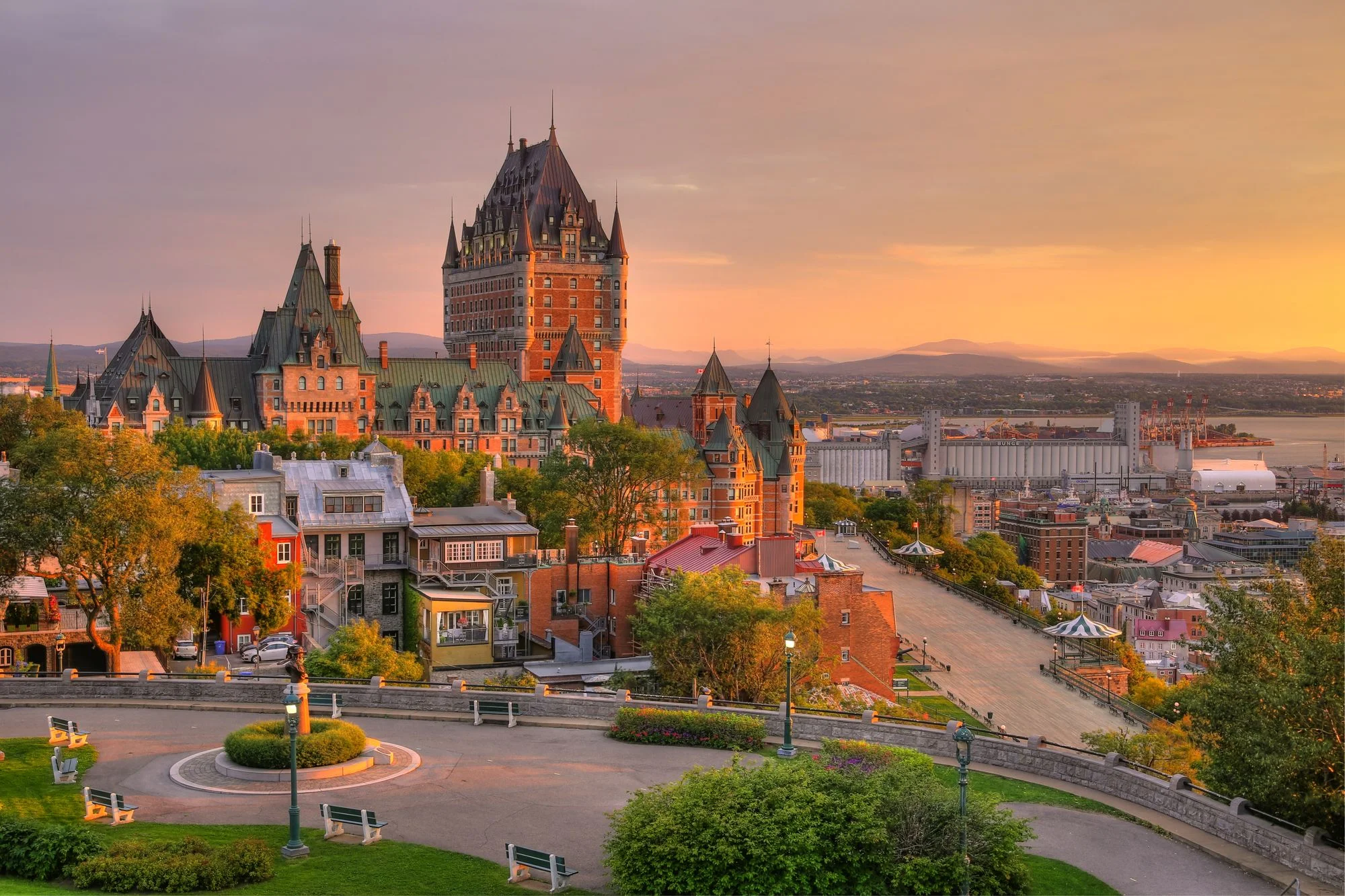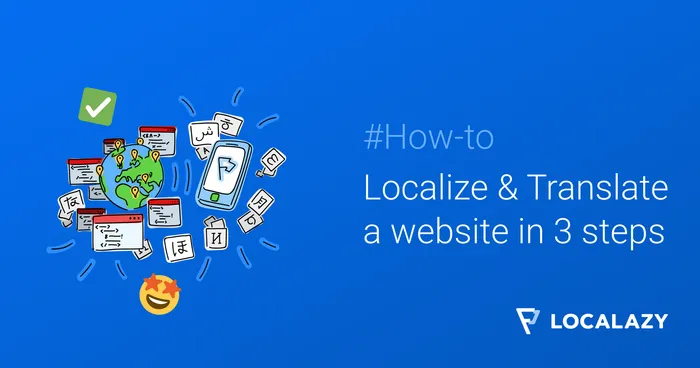In our Localization for the French Canadian market guide, we discovered the particularities of Quebec French and how it differs from Standard French. We also discussed the various factors that make Quebecers so different from the rest of Canada: history, language, religion, culture, and geography.
In this guide, we'll explore consumer behaviors a bit more deeply, highlight the most promising industries, and cover the legal aspects to consider when expanding to this region. ⚖️
You'll find out that even though the Quebec market is fairly small compared to most, you could choose to include it in your localization strategy. The region has a lot to offer in terms of economic opportunities for those looking to expand into sectors like technology, innovation, arts, or even natural resources.
Although the Quebec government has implemented strict regulations to protect its consumers and language, what you might consider abundant opportunities offset hurdles. In this article, we'll demystify some of the most common challenges.

🛍️ How Quebecois people shop 🔗
Quebec's GDP could prove resilient compared to the rest of the country, notably due to the lower level of household debt. According to a recent Léger survey, the proportion of households describing their financial situation as poor stood at just 23%, compared with 35% for the rest of Canada. Approximately 36% of Quebecers live paycheck to paycheck, which is below the national average of 44%.
Online shopping especially, has taken a hike, as 46% of Quebecers buy more items online now compared to three years ago, which is lower than the national average. It is important to note, though, that 69% of Quebecers are focusing more on their values, like sustainability, when shopping. They are also more likely to support businesses that match their personal principles, with 34% considering whether a retailer protects the environment before making a purchase.
Sustainability and the pursuit of pleasure are essential for Quebecers. That's why they examine environmental footprints closely and spend more on food, cultural events, clothing, and beauty products
Physical products 🔗
According to the book Cracking the Quebec Code in 45 minutes—7 keys to succeed in Quebec (Jean-Marc Léger, Jacques Nantel, et al.), Quebecers are hedonistic people, which means they're engaged in the pursuit of pleasure. For them, joie de vivre is an anchoring point and a fundamental identity trait. This is reflected in how they spend their money:
- 🍷 Even though Quebecers tend to earn a lower salary than most other Canadians, they don't compromise on food, alcohol, going out, and attending cultural events or outdoor activities.
- 👔 Because they also collectively care about other people's opinions, both men and women value their appearance and spend more on cosmetics, clothing, and hair products than most other Canadians.
- 🫐 Quebecers also use their money to support local businesses. This is important if you run a brick-and-mortar shop. If you can make yourself part of the local economy, you'll have better luck. Try incorporating some local products into what you offer.

Online shopping 🔗
According to Académie de la transformation numérique (Digital Transformation Academy), as of 2023, 74% of adult Quebecers had made personal purchases online and had spent a collective $17.8 B online (an 8.8% increase compared to 2022). 16% of those purchases were made with a Canadian or foreign retailer, while 15% were made with Quebec retailers (11% lower than the previous year).
In 2023, 87% of young adults aged 18 to 24 and 89% of adults aged 25 to 34 had made online purchases. Since the pandemic, the number of people who have experienced the convenience of online shopping has gone up, and it looks like this trend is here to stay. After all, 5 out of 10 online shoppers say that their online purchases have gone up compared to 2020.
🔬 Quebec's top industries 🔗
The region is fertile ground for daring entrepreneurs. Technological growth and government support have helped create a favorable environment for business. For example, tech companies are being courted to set up data centers in Quebec due to its proximity to abundant hydropower and the fact that it offers some of the lowest rates in North America. According to Teresa Carlson, vice president of Worldwide Public Sector for AWS, "We picked the area because of the hydropower. We did find them to be very business-friendly."
Quebec is known for its diversified economy, strategic geography, rich natural resources, free-trade agreements, thriving exports, and innovative workforce, especially in advanced industries like aerospace, AI, and cybersecurity. Let's dive deeper into these industries.
7 promising sectors to watch 🔗
- ⚡️ Electricity production (hydropower): A dominant economic sector in Quebec since it's the primary natural resource and contributes to the region's energy independence.
- 🧑💻 Software development: Quebec businesses stand out in this area, which covers a variety of uses, such as solutions for businesses and the general public.
- 🔐 Cybersecurity: Companies are in constant need of innovative technologies to protect their IT systems and strengthen confidence in data security. Demand in this area has grown exponentially.
- 🦾 AI and machine learning: The province has committed to actively promoting and supporting the development of AI and digitizing businesses in all economic sectors.
- 🧳 Tourism (leisure and business): Since the pandemic, tourism has been booming. In particular, business tourism has become an important area of growth for the province. The government's Action Plan for 2023–2026 supports initiatives in this segment of the economy, meaning opportunities abound.
- 🧬 Biotechnology: With Canada ranked at the global top, most efforts are geared toward healthcare, especially in the pharmaceuticals, clinical research, food transformation, and engineering industries. The goal is to improve human, animal, and plant health while protecting the environment.
- 🛰️ Aerospace: With more than 700 companies operating in this field and over 85,000 direct jobs across this sector, aerospace is an important economic driver. In 2022 alone, aerospace generated sales of $18B, and over 80% of Quebec's manufactured products in this sector were exported. That year, aerospace became number 1 in Quebec exports — and the trend hasn't slowed down in 2025.
Quebec is known for its diversified economy, strategic geography, rich natural resources, free-trade agreements, thriving exports, and innovative workforce. Technological growth and government support have also helped create a favorable environment for business
A note about arts and culture 🔗
Aside from the above industries, it's important to note that the Quebec government is committed to ensuring a flourishing local culture. For instance, in their 2024–2025 budget, they set aside $187 million over a five-year period to showcase culture and promote the French language.
What does this mean for localizers? Understanding how important it is to contribute to local culture is your way of earning a place in the heart of your Quebec audience, especially if you plan on doing any form of advertising or marketing in that region. You could make a real impact.

👩⚖️ Legal requirements 🔗
The entire legal system is different in Quebec. Due to its history, Quebec operates under the Civil Code (a.k.a French law), whereas the rest of Canada operates under the Common Law system (British law). If you are operating in Canada, make sure you consult with Quebec law experts to make sure you are compliant. Here are some of the legal requirements related to operating a business in Quebec.
Charter of the French language and Bill 96 🔗
A language that doesn't evolve is a dead language. One way Quebec protects French is by appointing a legal body to oversee it. As the world opened up, with the arrival of the Internet especially, Quebec has had to defend its language not only from a geographic standpoint but also from technological advances.
In 1977, the Charter of the French Language (also called Bill 101) was adopted to preserve the quality and status of the French language. It also ensures that French will remain "the normal, everyday language of work, education, communication, and business."
In 2022, Bill 96 significantly amended the Charter to further solidify the fact that French is the only language of the province of Quebec. It imposed new requirements on government services, businesses, and the workplace, and set higher fines for non-compliance. The biggest changes were related to the use of French:
- In workplace settings
- In business and commerce
- In government contracts and services
- In the education system
- In businesses of 25 employees or less
- On public signage
- For non-compliance complaints and penalties

Among other considerations, companies with at least 25 employees are now required to provide all communications in French to their employees or potential employees. There is also a new requirement for public signage and trademarks: French must be "markedly predominant," which means it has to occupy twice as much space as any other language and have a bigger visual impact.
How to comply with Bill 96 🔗
To be successful in your Quebec operations and avoid potential legal repercussions due to Bill 96, it's crucial that you follow the new requirements. Remember that all it takes is one complaint to be fined.
Here are some of our tips:
- 📋 Content: Make an exhaustive list of all content that your audience will have access to from onboarding to offboarding (product, marketing, legal, operations, communications, etc.).
- 🧑💼 Employees: If you employ more than 25 people in Quebec, remember that you'll have to provide all their documentation in French (job posting, offers, communications, contracts, training materials, etc.).
- 🛒 Physical products: Take a look at your labeling. Is French the dominant language?
- 🚯 Signage: If you operate a storefront, make sure your French signage is visually dominant. There are specific rules related to this.
- ☕️ Local advice: Consult with local experts to make sure you are complying with requirements, such as a legal counsel who can guide you through the process, local linguists to help you adapt your content, or even a local ad agency.
⚠️ Companies have until June 2025 to comply fully with Bill 96

How complaints and fines work 🔗
The new bill has streamlined the process for filing a complaint. Legal fines for non-compliance are now much steeper — and they can accumulate quickly since every day where there's a violation is considered a separate offense.
Here's how the fines work. Imagine you sell a product online to Quebec-based customers. Your product packaging doesn't include a translated set of instructions. When your customer calls your company to get more information, they are unable to receive service in French. Your customer, frustrated, decides to complain to the Office québécois de la langue française (OQLF). As a result, the OQLF will assess the complaint, and if it is substantiated, you will be given a notice to comply within 30 days. If you don't comply within that time frame, the OQLF will forward your case to the DPCP, a public body responsible for pursuing justice for the public interest. The OQLF doesn't issue the statement of offence or the fines — this is done by the DPCP by prosecution. The DPCP will issue you a fine for your first offense. If you do not follow the charter a second time, your fine will double, and any subsequent offense will then triple the fine.
Here's a breakdown of fines based on the number of offenses:
In a nutshell 🔗
More than ever, localizing content for the Quebec market means committing to providing all materials in French beyond product and marketing efforts. You must always be mindful that if your audience or customer doesn't get services in French, they can complain to the proper authorities, and you may have to pay the price. 💰 It also means that you have to ensure you uphold a certain standard for quality translations.
⚖️ Quebec's Consumer Protection Act 🔗
In Canada, consumer protections are enforced by different levels of government and non-government organizations. Every province has established laws to protect its consumers, but the Quebec Consumer Protection Act (Loi sur la protection du consommateur) can be particularly strict compared to other regions.
The act covers advertising, price labeling and accuracy, permits, false claims, and contract statements, among other categories. Customers have ample protection when purchasing a wide variety of products and services. Some examples this can apply to are:
- 🏋️♀️ A gym or weight loss clinic membership
- 🛵 Used cars or motorcycles and vehicle repairs
- 💳 Prepaid cards and contracts involving credit
- 💻 Items purchased online or through a catalog
- 🍳 Home appliances
- 📖 Training courses
- 🗝️ Long-term leases
Some of these legal requirements can indeed present a challenge for many companies trying to enter this market, but they are intended to protect consumers and the French language. Think of them as a way to hold businesses accountable by ensuring they provide the highest-quality products and services.

🍁 A market worth the effort 🔗
When a new company enters Quebec, its success can either contribute to enriching the local language or diluting it. Since English geographically surrounds the province on all sides, the government is responsible for ensuring that companies respect the fact that the region operates in French. It can be challenging to navigate the various legal obligations as you enter Quebec, but a general rule applies: operate in the most transparent way possible. For those who dare to take on the challenge, opportunities are fruitful.
To make it easier for you, we recommend you start by using tools that make your localization management easier. ☝️ When launching into a new market, there are so many moving pieces that it can be hard to keep track of everything. Localazy uses automated workflows and other powerful features to help you streamline your localization processes. On top of it all, you have easy access to native professional linguists via CLT, which takes a lot of the back-and-forth stress out of the equation.




